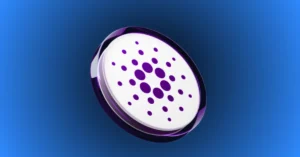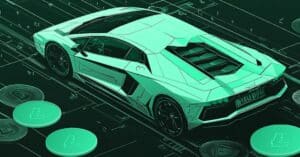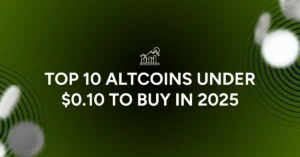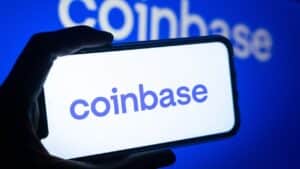How major German companies like Mercedes and Lufthansa are using NFTs.
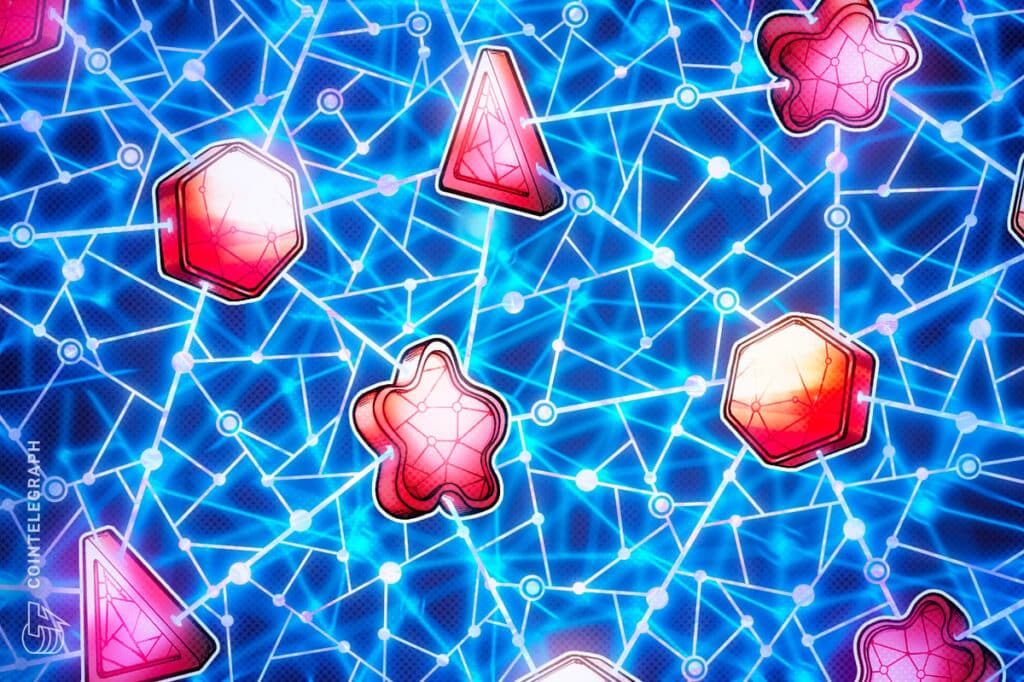
For the most part, non-fungible tokens (NFTs) have two main use cases: buying and selling digital products (digital art, virtual fashion items) and building digital communities (exclusive memberships, access to events).
These use cases can easily be adopted by brands and companies such as fashion brands that sell digital clothing, various companies that offer NFT-based club memberships, and musicians that hold special concerts for their fans.
Traditional German companies are jumping on the bandwagon, realizing the potential of NFT technology to innovate and market their products and services.
Deutsche Post combines NFTs and AI.
German postal service Deutsche Post will release its first limited edition collectible stamp on November 2, 2023. A familiar self-adhesive stamp comes with a digital image – an NFT that represents ownership of the stamp.
The first stamp features a pixelated image of the Brandenburg Gate created by artificial intelligence (AI). Stamps in the collection feature other famous German symbols.
Whether NFT stamp collecting will be a commercial success remains to be seen. However, it is a big step for Deutsche Post, which is looking to expand its reach into the digital world.
The first official German #crypto # stamp is coming. More: pic.twitter.com/XS4y5nkFCo
— Deutsche Post and DHL News (@DeutschePostDHL) October 12, 2023
Lufthansa takes to the skies with NFT wisdom
NFTs can be used for a variety of loyalty programs, offering businesses a new way to connect with their customers and build brand loyalty by providing a more valuable and engaging experience for customers.
An example of such a program is the Lufthansa NFT loyalty program on the Polygon network. In collaboration with Lufthansa's Innovation Hub and Miles & More, its frequent flyer programs, Lufthansa has developed the Uptrip mobile app, which allows passengers to convert their travel experience into NFTs. These NFTs can be redeemed for rewards such as mileage bonuses and business lounge vouchers.
Lufthansa's @Uptrip_app loyalty program is building #byPolygon to turn flights into rewards Collect NFT business cards for every flight and claim rewards
Learn more about the new Miles & More and @LHInnovationHub experience: pic.twitter.com/JfUEoUJxNR
— Polygon Labs (@0xPolygonLabs) August 31, 2023
Christopher Siegloch, head of program development and services at Miles & More, said the app has generated significant interest among Lufthansa customers. Since its launch, more than 20,000 users have registered and more than 200,000 collection cards have been issued. Siegloch highlights that game elements play a vital role in introducing participants to Web3 technologies such as NFTs, and the app successfully translates the enthusiasm of gathering into the digital realm.
Additionally, in the second half of 2023, the app will introduce a digital marketplace where users can trade and sell NFTs, with special NFT reward offers planned for the future.
Adidas and Hugo Boss reimagine fashion
NFTs are also reaching fashion brands. For example, German apparel company Adidas continues to refine its Web3 strategy by actively using NFTs to find new ways to connect with its athletes, sneakerheads, and the sports enthusiast community.
Adidas recently introduced a limited edition NFT sneaker inspired by the original shoe design. These digital sneakers can be seen in virtual environments, allowing users to express their love for the brand in the metaverse.
Latest: How Google's AI legal protections will change intellectual property and copyright protection
Adidas is finding new ways to use the full potential of NFT to empower the community. A final example is The Adidas /// Studio, or Three Stripes Studio, a web3-based digital artist-in-residence program launched to showcase and support emerging creators in the NFT space. According to adidas, the aim is to support and promote creativity in the digital world, giving artists the opportunity to showcase their work and collaborate with the sportswear giant. This collaboration extends beyond digital projects and may include physical products in the future.
Another German fashion brand, Hugo Boss, has also entered the NFT platform with a focus on metaverse fashion. The company has collaborated with renowned digital fashion designers to create a series of exclusive NFT apparel. These digital fashion pieces can be worn by avatars in the virtual world, allowing users to dress in style even in the digital world.
Mercedes-Benz digitized its history
Mercedes-Benz has a rich history spanning more than 130 years, attracting a dedicated following of nostalgia enthusiasts and collectors. The brand's iconic models, vintage cars and related memorabilia, whether in their original form or as miniature models and toys, continue to hold their appeal. In line with its strategic direction, the German automaker is entering the Web3 space with the launch of the Mercedes-Benz NXT to enhance its engagement with the community.
In September, Mercedes-Benz launched its third NFT collection: The Luxury Era. These are digital interpretations of iconic designs from seven design eras created by Mercedes-Benz NXT icons. The collection spans from today to the early history of automobiles.
1/ What a wonderful revelation Wednesday! In this thread we'd like to show you a selection of Mercedes-Benz NXT icons from the “Era of Luxury” combo.
Let's start with Mercedes-Benz NXT Icons #41 collected by Pacwacker. ↓ pic.twitter.com/ogyubfA9M8
— Mercedes-Benz NXT (@MercedesBenzNXT) September 29, 2023
All three NFT collections demonstrate how Mercedes-Benz is actively exploring the possibilities of integrating the digital realm into automotive design. This effort is led by the brand's Chief Design Officer, Gordon Wagener, who leads the Mercedes-Benz design team to create digital collections. The main objective is to reinterpret the brand's most famous designs, in the digital format of NFT cards.
Ritter Sport, Haribo and Katjes make delicious NFTs
Rittersport, a German chocolate brand, also entered the NFT world by introducing a limited series of digital chocolate bars as NFTs in August 2023. The NFT collection is called Square Art and consists of 256 pieces of digital pixel art each of the Square Ritter Sports Bar.
GM! In the spirit of Clara Ritter, we've put together a collection of digital collections: “The Art of the Square,” available August 23rd. At 4:00 p.m. the approved listing is already online! This way: & #digitalart #hodl pic.twitter.com/9gIecKpkNe
— ClaraRitter.eth (@clararittereth) August 9, 2023
Ritter uses creative marketing strategies like this to engage with a tech-savvy audience, not just sports. Other German food brands have released their NFT collections. For example, confectioner Katjes released an NFT collection of three baby unicorns named Dash, Willow and Sparkles in April 2023.
This was Katjes' second NFT campaign after releasing a limited batch of 777 Unicorn NFTs in May 2022. Both campaigns were a way for Katjes to reach a younger audience, with baby unicorns being a popular character among children and teenagers.
Magazine: Ethereum Resurgence: Blockchain Innovation or Dangerous House of Cards?
German confectionary Haribom, known for its gummy bears, has entered the world of NFTs. In the year In April 2023, the company filed for NFT trademarks in the United States, signaling its plans to expand the brand into the digital world. The trademarks cover a wide range of digital assets, including digital avatars, multimedia files, dessert-related artwork, cartoons and other items certified by NFTs.
German confectionery company #HARIBO has registered its name for the following trademarks.
✅ Smart watches ✅ VR glasses ✅ Media certified by NFTs ✅ Jewelry and toys
…and more! #NFT #MetaverseNFT #GoldBears #trademark #candy #NFTs #VR pic.twitter.com/y7WqNVJC7c
— Mike Kondoudis (@KondoudisLaw) April 26, 2023
Adidas, Haribo, Lufthansa, Deutsche Post and other traditional German brands have joined the list of businesses entering the NFT space. This expansion marks a significant change in the perception of NFTs, as they are no longer seen as just a good investment opportunity.
Instead, NFTs are being seen as a primary marketing tool and a way to experiment with new concepts that connect the virtual and physical worlds and build new communities.





